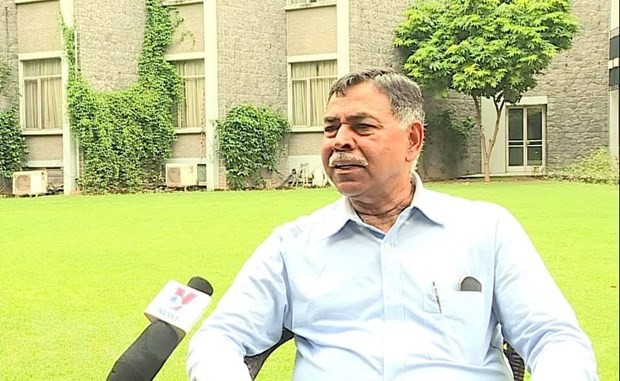(VOVWORLD) - An Indian scholar has condemned China’s intimidation of smaller countries in an attempt to force them to abandon their legitimate legal rights.
 Dr. Rajaram Panda in an interview with the Vietnam News Agency. Dr. Rajaram Panda in an interview with the Vietnam News Agency. |
The comment by Dr. Rajaram Panda, a Lok Sabha Research Fellow of the Parliament of India, came in light of the Chinese survey vessel Haiyang Dizhi 8’s encroachment on Vietnam’s Exclusive Economic Zone (EEZ).
He said China is violating international law and its actions are unacceptable. Vietnam has the right to protect its sovereignty, and its right to sovereignty and jurisdiction in the area is in line with the 1982 UN Convention on the Law of the Sea, Mr. Panda said, noting that Vietnam is entitled to cooperate with other countries in demanding the removal of Chinese ships from its waters.
He said maritime security plays a key role in many coastal countries’ economic development and no single country is able to safeguard maritime security and order in the entire East Sea. Countries with shared views should cooperate to protect global interests, he suggested.
Mr. Panda said that ASEAN’s central role is very important and India always stands by the side of allied countries as New Delhi aims to promote prosperity in the region in accordance with international law.
Meanwhile, Rudroneel Ghosh, a Delhi-based journalist working for The Times of India, wrote that China has been undertaking what can only be described as unilateral, provocative actions that threaten regional peace and security.
The East Sea accounts for a huge percentage of Chinese trade and energy flowing through it but it is equally important for neighbouring Southeast Asian nations, according to Mr. Ghosh.
He stressed that there is still time and China would do well to abandon its encroachment in the East Sea, and engage in meaningful dialogue with all stakeholders without preconditions, while upholding international law, and jointly ensuring the security of regional maritime waters.
In order to realize this, pushing through a legally binding Code of Conduct for the East Sea with ASEAN nations is imperative, Mr. Ghosh said, emphasizing that China must give up its unilateralist, intimidation-based posture in the East Sea.